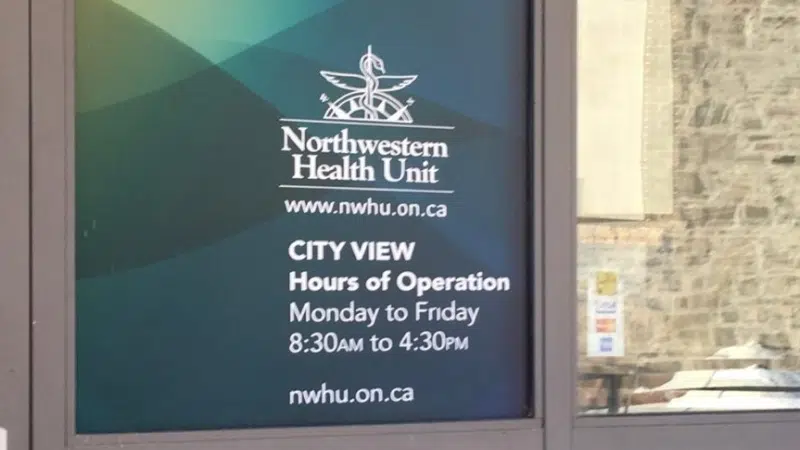
The Northwestern Health Unit believes province-wide restrictions won’t be implemented if COVID cases continue to rise.
Medical Officer of Health Dr. Kit Young Hoon says all indications point to a regional approach.
She says they would consider further restrictions if numbers go up locally and there is increased community spread.
However, Dr. Young Hoon notes it’s really hard to predict with the new Omicron variant.
Dr. Young Hoon says they follow a certain criteria when making these type of decisions.
“How many cases there are. Are cases clustered together in just one small area or is it wide spread throughout the community. We also look at percent positivity and also the rates of hospitalization and the impact on the health care system.”
She says they also have to look at their own capacity and ability to do case and contact management.
Dr. Young Hoon states strong consideration would be given to further restrictions if cases reach between 60 to 100 cases per 100,000 population per week.
Several other jurisdictions in Ontario have taken action due to rising COVID numbers and concerns over the variant.
Northern Ontario health units such as Algoma and Timiskaming, as well as Chatham-Kent in southern Ontario, have introduced additional public health safety measures.
Dr. Young Hoon says local case numbers are stagnant but notes they have to be mindful of what’s happening around us.
“Thunder Bay District Health Unit is moderately high and appears to be increasing. Manitoba has been steadily increasing including Winnipeg Regional Health Authority which up to this point had been the least affected Health Authority. And then of course Minnesota has been very, very high.”
Dr. Young Hoon says if you do have to travel, make sure you are vigilant and follow all public health measures.
She stresses any decision on additional restrictions and timing would come in consultation with the province and Public Health Ontario.
This comes as Ontario has extended its pause indefinitely on moving to the next step of its reopening plan.
Capacity limits were supposed to be lifted November 15 in remaining high-risk settings where proof of vaccination is required.
That was delayed at least 28 days on November 10.
The government has announced the pause would continue another 28 days in order to monitor trends in public health and learn more about the Omicron variant.
Higher-risk settings impacted include food or drink establishments with dance facilities such as night clubs and wedding receptions in meeting/event spaces where there is dancing.
Modeling of COVID-19 shows cases could hit 3,000 a day by next month.
Chief Medical Officer of Health Dr Kieran Moore says as the weather gets colder the number of cases is expected to rise.
“The modeling is predicting a rise in cases, which I think we all knew would occur, as we head indoors in crowded spaces and closed places,” explains Dr. Moore.
“I am concerned about the coming months and its potential impact on our health care system. And hence our fate is in our hands.”
Dr. Moore adds, “The modeling is disconcerting. We’re seeing a continued rise in cases across Ontario and its impact on the health care system. To me as a public health physician, all of the cases, for the most part, are preventable. It saddens me deeply to see the vast majority of individuals in our intensive care units, they are all unvaccinated. They never took advantage of the means to protect themselves.”
Dr. Moore says the modeling doesn’t take into account the Omicron variant, because they still don’t know what impact it might have.



